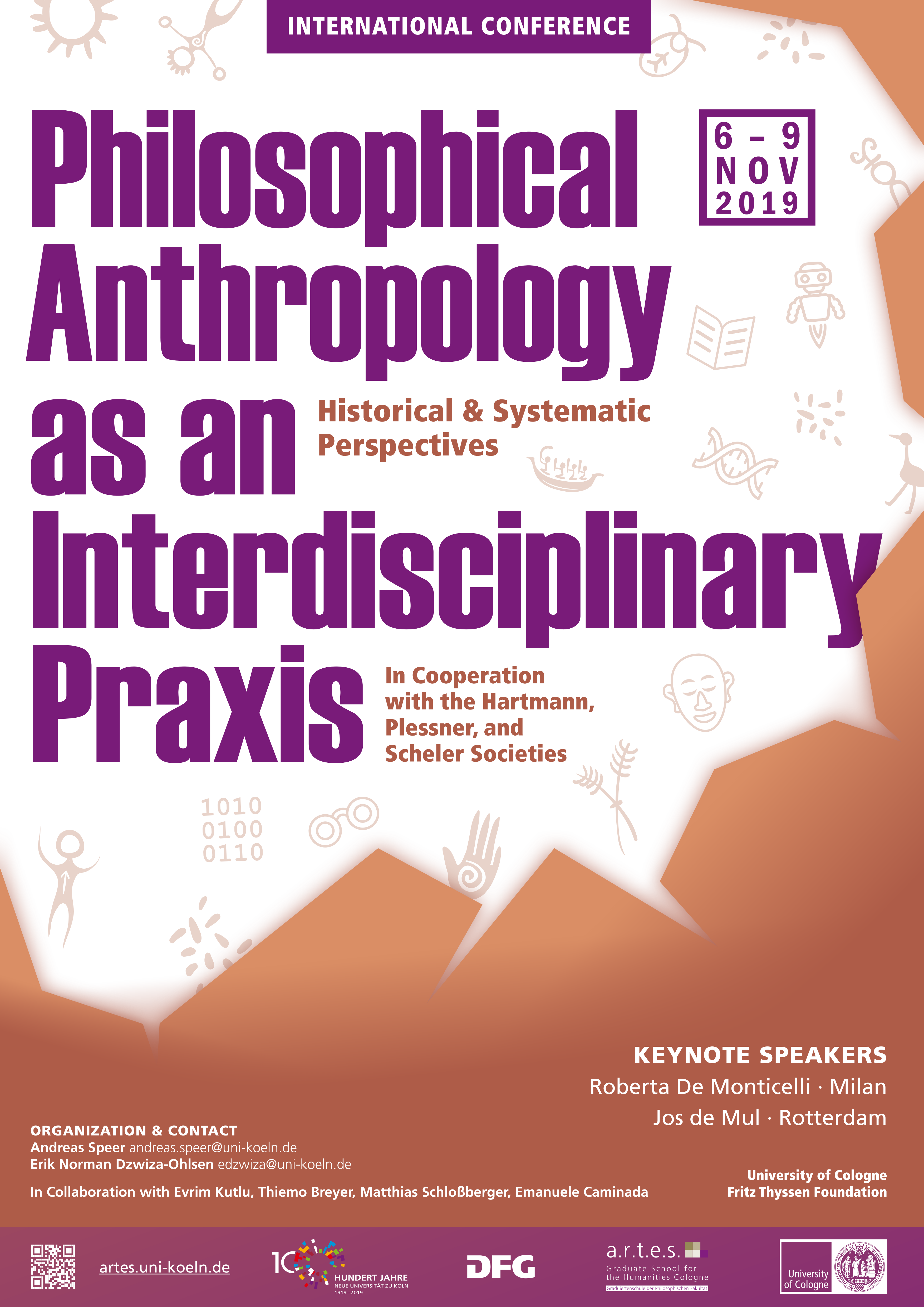Call for Papers: “Interdisciplinary Anthropology of the Future – Social, Political, and Ethical
Dimensions” (6 November 2019; Deadline, 25 September 2019)
Today, there is an ever-increasing interest in anthropology. This is especially evident in the broad
competition of scientific anthropologies in the neurosciences, medicine, evolutionary biology, comparative psychology or in the humanities such as ethnology, sociology, or theology. As early as 1928, Max Scheler outlined a similar scenario in the foreword to his seminal philosophical essay, The Human Place in the Cosmos, “The ever-growing number of special discipline which deal with the human being conceal, rather than reveal, his nature, no matter how valuable these disciplines may be.” The continually increasing diversity of specialized sciences devoted to the human person – as important as they may be – occludes far more than it enlightens the essence of the human person.” This diagnosis is still relevant today. Thus, the work of the Research Lab of the a.r.t.e.s. Graduate School for the Humanities Cologne addresses exactly this problem.
A central question for the Research Lab concerns the present possibility of a philosophical anthropology that avoids the Scylla of a more or less isolated philosophical foundation as well as the Charybdis of an atomization that sets the natural scientific disciplines in opposition to the humanities. ‘Interdisciplinary anthropology’ denotes the attempt to avoid such constrictions and to integrate the various approaches to the human. This also means to methodologically account for the disciplinary varieties and epistemic conditions of thinking about the human being.
The Cologne pioneers of Philosophical Anthropology, Max Scheler (1874–1928), Helmuth Plessner (1892–1985), and later Nicolai Hartmann (1882–1950), are ideal interlocutors for this project as they are likewise pioneers of interdisciplinary cooperation. In order to reflect on their contemporary meaning anew, the festive context of the 100 th Jubilee of the University of Cologne offers an ideal occasion because these three thinkers substantially influenced the re-opening of the University of Cologne in 1919.
But what impulses can these philosophers provide in times of accelerated and still accelerating global transformations? Can their philosophies answer the great social, political, and ethical questions of the present and the future – such as digitalization, globalization, migration, human rights, nationalism, populism, or climate change? Is an ‘interdisciplinary anthropology’ suitable for depicting the diverse and floating relations of human existence with its environment? And if so, what can such an approach look like, especially with regard to the philosophies of Scheler, Plessner, and Hartmann? Or do their philosophical projects have to be considered outdated in the face of cultural and historical diversity on the one hand and the challenges of neo-, post-, and transhumanism on the other?
In order to reflect on these and other questions, the Research Lab of the a.r.t.e.s. Graduate School for the Humanities Cologne – as Centre for Early Stage Researchers – is holding a workshop on “Interdisciplinary Anthropology of the Future – Social, Political, and Ethical Dimensions” on 6 November. The workshop opens the four-day DFG-funded conference on “Philosophical Anthropology as an Interdisciplinary Praxis: Max Scheler, Helmuth Plessner, and Nicolai Hartmann in Cologne – Historical and Systematic Perspectives”, organized by a.r.t.e.s. in cooperation with the Scheler, Plessner, and Hartmann Societies, which takes place from 6 to 9 November 2019.
The call is directed at master students, PhD candidates, and early postdocs of all disciplines and
nationalities. All workshop participants are invited to join the conference, the official program of which will be available shortly. The funding is still being applied for and it is sought to cover most of the travel and accommodation costs. Please send a detailed application (CV, a short letter of motivation, and an abstract of max. 500 words) in english or german to Erik Norman Dzwiza-Ohlsen (edzwiza@uni-koeln.de). The deadline for submission is 25 September and a response is given after a short time. Further information can also be found at artes.uni-koeln.de.
